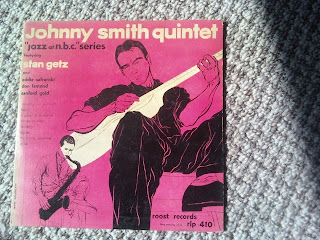One of my favorite bands of all-time. Although not a very commercially successful band, they were one of the highest touring bands of the late 60's and early 70's. Probably best known for their performance of "I'm Going Home" at Woodstock, Ten Years never saw much success on the Billboard. They formed back in 1967 and provided many studio and live albums, many of which have been remastered and released on CD.
Alvin Lee's guitar playing is on point all through out this record. Released in 1972, it features: Alvin Lee - guitar and vocals / Leo Lyons - bass / Ric Lee - drums / Chick Churchill - keyboards. All the selections were written by Alvin Lee and this album is full of high energy blues-rock tunes. The band is extremely tight on this record despite some internal struggles between the members. This is not one of their best records and side one is by far the best, featuring some fiery lead guitar work by Lee. This is often seen as one of their most commercially popular albums and peaked at number 43 on the Billboard 200.
Track Listing:
Side one
- You Give Me Loving
- Convention Prevention
- Turned Off T.V. Blues
- Standing at the Station
- You Can't Win Them All
- Religion
- Choo Choo Mama
- Tomorrow I'll Be Out of Town
- Rock & Roll Music to the World


